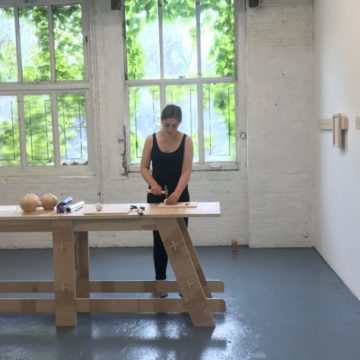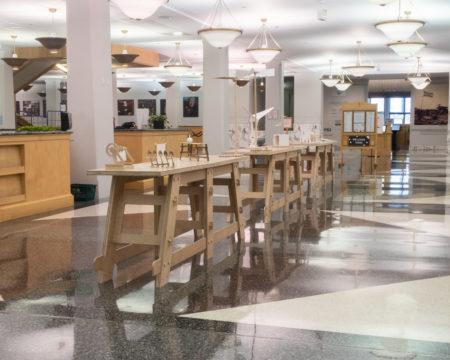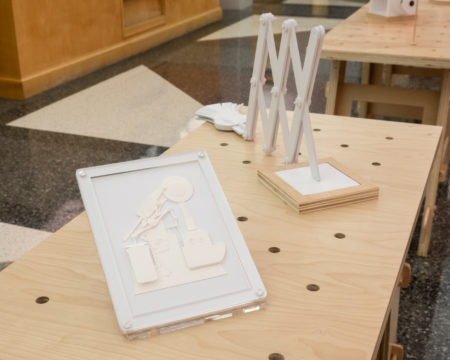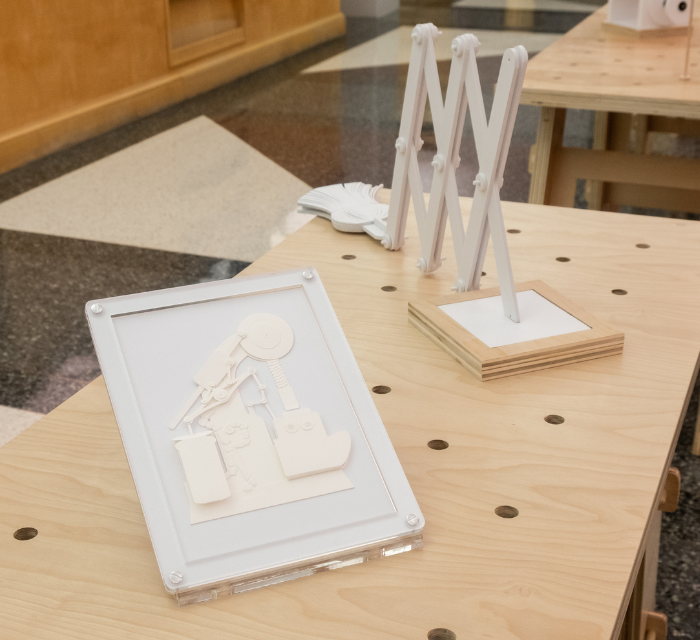
When a nine-month Maker Lab residency turns into an unbelievable two-year journey
The art and the artist: An evolution
When we last sat down with Kate Conlon in June 2019, she was three months into her residency. To say that a lot has happened since then would be an understatement. COVID-19 has forced the city to temporarily close its doors, even the Library.
“I was expecting the project to be finite, with a beginning and an end. But throughout this process and because of what has transpired, CPL has changed a lot. My work has changed a lot.”
How did the pandemic change Kate?
“I had to reimagine how my art is experienced and how it reaches an audience,” she begins. At the same time, Kate found a sense of focus within the limits of her apartment.
“Sometimes, when all the possibilities are open, it’s hard to find what you’re looking for. I found a lot of value in a few months at home with just a stack of white paper, a needle, and thread.” Kate continues.
When the world went into lockdown, Kate drew from her experience at the Maker Lab to improvise a new kind of studio workflow.
“I learned how to use digital cutting equipment at the Maker Lab and I was able to quickly mimic the Lab’s setup at home. My work relies on the ability to move back and forth between digital files and physical objects. Purchasing a small plotter cutter allowed me to continue that pattern of thinking and making while I didn’t have access to shared facilities and equipment.” Ever the maker, Kate used her home studio to begin prototyping and refining projects, preparing them for a larger scale production.
“This time has made me disconnect some of my circuitry and think how I can put it back together in a smarter way.”
A maker will always find a way to make.
A living document in time

When we left Kate on the third floor, she was in the beginning stages of a project inspired by Harold Washington Library’s archive of ephemera from Chicago’s 1933 Century of Progress Exposition. Today, three workbenches, a kind of sculpture/furniture hybrid, are installed in that very same location.
“At the beginning of the project, I expected that my mind would catch on to a single story or idea and that idea would become the subject of the exhibition. After a few months in the Special Collections, I found that no one topic was coming to the fore. What I found instead was a complex web of questions and contradictions.” As a result, Kate’s culminating work as a maker-in-residence is a dynamic and interactive installation comprised of many smaller explorations.
Sited directly in front of the stacks and between two circulation desks, The Story of the Tin Can is an invitation for patrons to ask, discover, and make.

“Placed on the three benches are objects that slot into holes drilled in the tabletops. The objects can be reorganized and reoriented to create different relationships and to work through ideas,” she explains. “One of my favorite things about working in the Maker Lab is that each problem you solve leads to a new question. You find yourself in a state of flow where the possibilities really seem endless.” Kate continues.
In a way, this work will always be in progress ─ shifting with the inquisitive energy that the Library brings out in people.
Why the title, The Story of the Tin Can?
“This title is borrowed from one of the pamphlets in Special Collections, a guide to a small exhibit about mechanized food production,” she says in candor. “If you look closely enough in any direction – even at the most mundane things – there’s inevitably something interesting to find.”
You can check out the photos of the exhibit here. Kate Conlon is an educator, award-winning artist, and an accomplished maker. You can learn more about her works here.
Stay updated with the latest Chicago Public Library and Library Foundation news, stories, and update when you subscribe to our free monthly newsletter, Bookmark.



